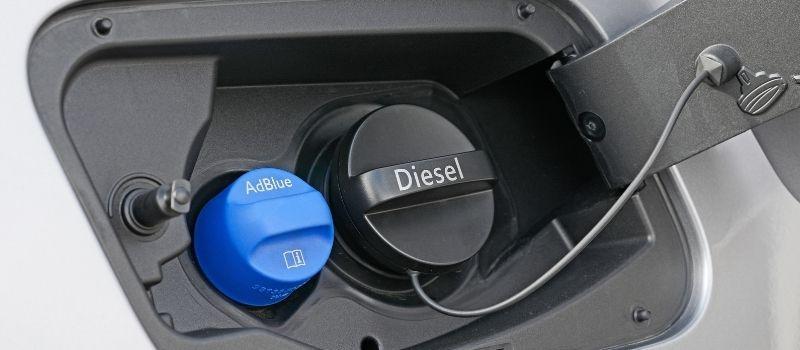Making sure your car meets all the rules and regulations in place can be a challenging task. Understanding why you need to use a certain liquid or material complicates the matter even further. AdBlue is one such example.
We have done the hard work for you and put together a short explanation guide to AdBlue and why it is so important to diesel cars.
What is AdBlue?
AdBlue is a brand of reducing agent that is needed in diesel cars that have Selective Catalytic Reduction (SCR) technology. By using AdBlue, you ensure that your car follows Euro 5 and Euro 6 emission standards.
How does AdBlue work?
The SCR system will have a part that allows the car owner or mechanic to inject AdBlue into the SCR system. The AdBlue injection point will be easily locatable under the bonnet of your car as it will be clearly labelled. This label is often clear to identify, as the lid will be blue.
AdBlue works with the SCR system to convert harmful Nitrous Oxide into Nitrogen and water. These are both less harmful to the environment and reduce the amount of pollution they create.
How often should I top up?
Usually, diesel cars will need topping up with AdBlue after around 3,000 miles. The driver won’t have to keep checking the AdBlue level as a warning light will flag up on the dashboard.
Consumption of AdBlue does depend on the make and model of the car. Peugeot and Citroën state their cars will need topping up after around 12,500 miles but this isn’t on all models of their cars. Some Vauxhall, Audi and Volkswagen models may require topping up around every 3,000 miles.
Dos and don’ts of using AdBlue
Can I use water instead of AdBlue?
You can’t use water instead of AdBlue or water down AdBlue. Tap water can be harmful to the vehicle’s exhaust treatment system.
Should I panic if I run out of AdBlue?
Your car engine won’t be damaged if you run out of AdBlue. Your engine will either limit performance or not start until there is AdBlue in your car.
Be sure to top up your AdBlue as soon as possible, as driving a car with an SCR system and no AdBlue is against the law.
What if my AdBlue gets contaminated?
AdBlue can easily be tainted by other materials or chemicals such as dust, oil, or grease. Be sure to check your AdBlue isn’t contaminated at any point.
If AdBlue is contaminated, then it can be harmful to your engine as well as being ineffective when used.
Contamination can occur from fluid entering the solution through the tank cap. Dust and dirt can also be easily washed down into the solution when the user uses a filling cap that hasn’t been thoroughly cleaned beforehand.
To prevent contamination, you need to follow the instructions laid out by the manufacturer. You need to ideally store you AdBlue in a cool, dry location that is out of direct sunlight. If the location is below –10 degree, the AdBlue will turn to slush.
To test AdBlue, you can buy a AdBlue refractometer. This device tests the purity of AdBlue to see if it has been contaminated.
Can I use AdBlue in my diesel fuel tank?
People often tend to mistake AdBlue for fuel additives. AdBlue should never be mixed with diesel. If you mistakenly add it to your fuel tank you could cause a lot of damage to your tank, pump and injection system.
Adding AdBlue needs to be treated like putting the wrong fuel in your car. Don’t turn on your engine as this could cause enough damage to completely write your car off. Before you can use your vehicle again, the fuel tank will need to be drained.
What to buy?
When it comes to buying AdBlue, we have a wide array of options available to ensure you are stocked up.
We offer bottles of AdBlue solution that can be delivered to you on a pallet. A pallet of AdBlue solution is ideal for taxi companies, police, or anywhere that has several vehicles that will need AdBlue.
Our AdBlue holding tanks offer safe and secure storage for your AdBlue in commercial and industrial settings. Having large tank holders for your AdBlue supply is again useful for businesses with large number of vehicles. The holding tank allows you to store your AdBlue orderly, rather than having bottles of AdBlue taking up space in your warehouse or workspace.
These holding tanks are manufactured from durable and long-lasting polyethylene materials that ensure the AdBlue is safe from damage or contamination.
If you’d like to find out more about what AdBlue we have available, please contact our sales team on 01777 858009 or email sales@kingfisherdirect.co.uk.

